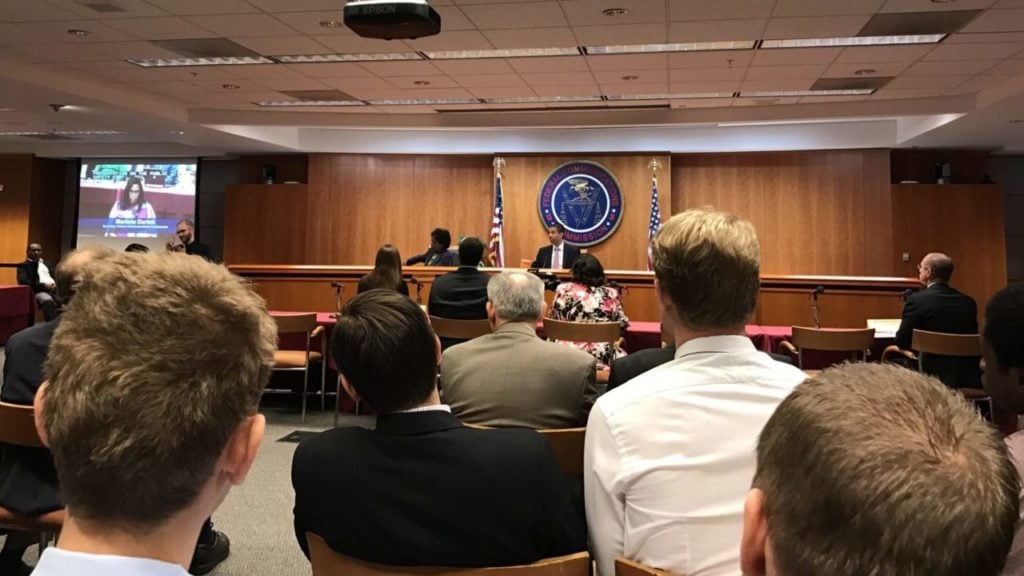The internet may return to its glory days, and this could mean a positive outlook for online entrepreneurs and the tech industry.
The Federal Communications Commission (FCC) passed a proposal last week that would redefine broadband internet to its original definition and in effect deregulate the service. The measure – conveniently titled Restore Internet Freedom – was pushed by new FCC Chairman Ajit Pai. The initiative is part of a greater effort by the Trump Administration to spur economic growth and competition in the United States.
Known for his strong stance against net neutrality, Pai proposed the official Notice of Proposed Rulemaking (NPRM) a few weeks ago, making its content transparent prior to the official commission vote – an unconventional process for the FCC. Indeed, Pai was the first ever commissioner to release a NPRM for public viewing prior to a vote.
But it’s not just Pai’s transparency efforts that are catching the eyes of politicians, industry titans, and the media – it’s his ardent support of deregulatory efforts and the rule of law.
If officially enacted, Restore Internet Freedom would repeal the 2015 Open Internet Order (OIO), an initiative of the Obama Administration. Since the enactment of the OIO, network infrastructure investment has plummeted. For roughly two decades prior to the OIO, internet network infrastructure was essentially deregulated – an initiative championed by former President Bill Clinton. The OIO established a utility-style regulatory status by defining the internet under Title II of the Communications Act of 1934. According to Pai and critics of net neutrality, this curtailed network infrastructure investment in the United States.
The NPRM passed the commission by a 2-1 vote despite Commissioner Mignon Clyburn’s long-winded dissent that lasted roughly 15 minutes. According to Clyburn, the measure would undermine a free internet and compromised access for poor and rural Americans.
However, a majority of the commission disagreed and they had industry leaders to back them up. Pai noted that not only has internet infrastructure investment declined among the nation’s top-twelve ISPs, but it has among dozens of smaller ISPs including 19 nonprofit or government-owned ISPs – the very groups that would create competition in the marketplace.
But the commissioners weren’t the only ones at the meeting debating the proposal. A group of roughly 25 pro-liberty activists were present at the meeting to show their support for Chairman Pai’s proposal.
“Today Young Americans for Liberty (YAL) activists expressed their interest in civic engagement by attending the FCC net neutrality hearing,” Justin Greiss, YAL’s Director of Mobilization said. According to these young advocates of capitalism, it’s time the government get out of the way of innovation and entrepreneurism.
“As champions of smaller government and free markets, YALs interest is to get the government out of the way. Since it's inception, the internet has been largely free of government interference and today we're excited it will remain as such,” Greiss said.
One of the YAL members who attended, Issac Edikauskas, echoed Greiss’ support for the measure.
“Regulating ISPs under Title II regulations has cost consumers hundreds of billions of dollars since It was put into effect in 2015. This regulation had done nothing positive to the economy and created job loss,” Edikauskas said. He currently serves as an intern for FreedomWorks in Washington, D.C.
Although there was a strong presence of millennial libertarians and conservatives who supported the NPRM that ultimately passed, there was a group of protesters outside of the FCC building. The NPRM will now proceed for a period public comments before being returned to the table for a final ruling.
MORE ON GOVERNMENT REGULATION OF BUSINESS:
• Government Can’t Save the Planet, But You Can
• Six Arguments Against Government Regulations









